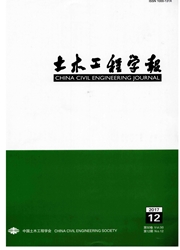

 中文摘要:
中文摘要:
国家积极鼓励和引导民间资本投资基础设施和市政公用事业,但与国营企业相比,我国民营企业发展BOT项目还存在明显劣势,BOT项目的风险管理是民营企业的挑战。对民营企业投资的某污泥处理BOT项日出现的争议进行分析,发现该项目存在着公共部门协调能力、费用支付、项目变更、技术创新及过程控制、费用计算方式等主要风险。结合BOT项目的风险管理理论和特点、风险分担原则和目标、民营企业的常见劣势,进一步揭示民营企业在政治风险、建造风险、运营风险、市场和收益风险、金融和法律风险等方面的管理和分担失误,最后提出民营企业发展BOT项目的风险管理建议。为今后民营企业参与类似BOT项目,在风险管理方面提供参考。
 英文摘要:
英文摘要:
Chinese government actively encourages and guides private capital to enter infrastructure and municipal public utilities sectors. However, risk management of BOT projects is a great challenge for private enterprises when compared with state-owned ones. The study on a sludge treatment BOT project run by a private enterprise shows that there exist risks in coordinating capability with public sectors, payment, project changes, technical innovations and process controls, payments calculation method, etc. Taken into account of risk management theories and characteristics, risk allocation principles and goals, and common weaknesses of private enterprises, the study further reveals the risk management and allocation flaws of private enterprises in political, constructing, operating, marketing, yielding, financial and legal aspects. As a result, some risk management and allocation suggestions are made for private enterprises in developing BOT projects in the future.
 同期刊论文项目
同期刊论文项目
 同项目期刊论文
同项目期刊论文
 期刊信息
期刊信息
